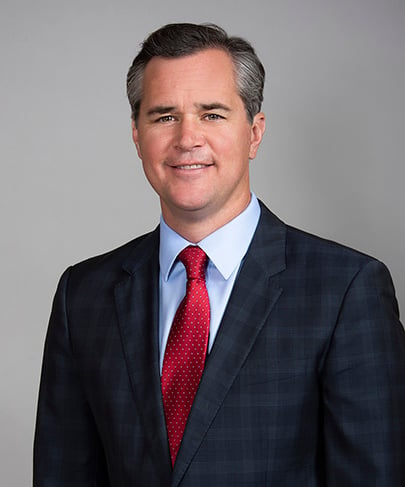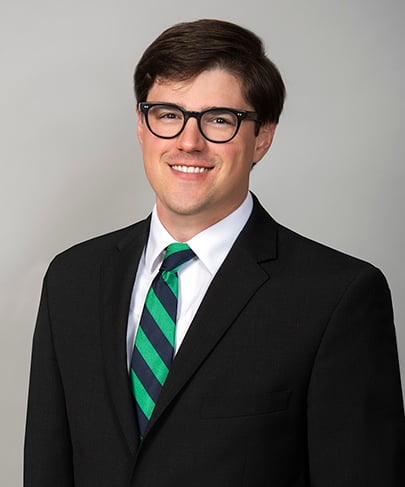Ohio Ethics Commission Issues Advisory Opinion Allowing Voluntary Contributions from Solar Developer to Local Government
DOWNLOAD PDF- O'Donnell, Terrence McDonnell, Matthew C. Pirik, Christine M.T.
- Industry Alerts
Click “Subscribe Now” to get attorney insights on the latest developments in a range of services and industries.
Opinion Contains Several Important Caveats
On May 20, 2022, the Ohio Ethics Commission issued an advisory opinion, Inf. Adv. Op. No. 2022-INF-0520 (Lecklider), in response to a local government’s questions about accepting voluntary contributions from a solar developer seeking to develop a project in the community. In rendering the opinion, the Commission took feedback from a variety of stakeholders including the Ohio Chamber of Commerce and the Ohio Township Association.
In short, the Commission opined that such voluntary payments—whether monetary or in-kind—are generally permitted under Ohio law. However, the Commission recommended the following guidelines.
- The donations should be “considered in a transparent manner” and the public should be able to give input on the acceptance of the donation. For example, the topic should be considered in a public meeting.
- The donation should be accepted using legislative authority.
- The donation should not be directed towards any individual or group of individuals. It should be directed at the public as a whole, without restrictions on the donation.
- The donation should not be used in a manner that would provide a benefit to an individual. For example, the donation should not be used to give a public official a salary increase.
- The donation should be used in a manner that is useful to the public or offsets the potential negative impacts of the environmental project.
Background
Harvey Solar applied to the Ohio Power Siting Board to construct a 350-MW solar facility in Licking County. The Board of Township Trustees and the Village intervened in the permitting case to represent local interests. Harvey had pledged donations to the Township (including the Fire Department, which is under the Township’s purview) and the Village of approximately $4.2 million over the estimated forty-year life of the project. The pledged donations were unrestricted as to the use of the funds. All but a small portion of the pledged donations were contingent upon the solar project beginning construction and subsequently operating; the small, non-contingent portion was a donation of $20,000 to fund near-term needs of the Fire Department.
General Guidelines
The Ethics Commission stated that the Township is not prohibited from accepting the pledge, as it is “reasonably required” to equip and train local responders pursuant to the “qualified energy project” statute under which developers make a “payment in lieu of tax, or PILOT.” R.C. 5727.75(F)(5). The Opinion noted the PILOT statute specifically contemplates and even requires payments to certain entities such as first responders.
Beyond the emergency response funding, the Ethics Commission stated that the Township and the Village are not prohibited from accepting a voluntary payment as it would “not manifest a substantial and improper influence on any public official or employee.”
The Ethics Commission emphasized the fact that this is not a case of “improper influence,” as the voluntary payment goes to the Township and Village as a whole, not to specific individuals. In addition, the Commission suggested that while not directly addressed in state law, a public entity should exercise caution in accepting a private contribution when a matter involving the “donor” is pending before the public entity. Accepting or providing donations under these circumstances could create an appearance of impropriety, the Commission reasoned.
Power Siting Board Approval & SB 52
The Power Siting Board approves all major utility facilities such as solar farms. Further, under the recently-adopted Senate Bill 52, local governments in a project area are permitted to add two ad hoc voting members to the Board. When deciding whether to approve a facility, the Power Siting Board looks into whether the facility “will serve the public interest, convenience, and necessity.” The Opinion states that because the Power Siting Board, not the Village or the Township, is the entity that approves each project, no appearance of impropriety is created when the Village, or the Township, or other public agency that is not the Power Siting Board, accepts a voluntary payment.
Payment in Lieu of Taxes
R.C. 5725.75 (the PILOT statute) provides owners of renewable energy projects tax exemption from the tangible personal property if they meet certain requirements and provide a payment in lieu of tax (PILOT). One of those requirements is to train and provide equipment to first responders—so naturally the Commission found payments to those entities were proper.
Conclusion
Solar developers should work closely with local governmental entities when contemplating voluntary contributions. The Commission’s deliberations were thoughtful and its members recognized the value Ohio’s business community can bring to local communities through voluntary contributions. However, the Commission recommends that local governmental entities follow its guidelines to avoid the appearance of impropriety and comply with state ethics law.
For assistance regarding solar projects in Ohio, please feel free to reach out to any of the following Dickinson Wright attorneys.
Related Practices
Contacts

Recent Insights
- Articles Ohio’s Cyber Law For Local Governments: 5 Steps Over 75 Days to Meet the September 29 Deadline
- Industry Alerts Ohio Extends Clean Energy “Payment in Lieu of Tax” Program for Four Additional Years: Legislature Adds Flexibility on In-State Workforce Requirement
- Industry Alerts Ohio Legislature Adopts New Wind and Solar Siting Law S.B. 52 Requires County Commission Approval
- September 15, 2025 Industry Alerts Key D.C. Circuit Decision Revives CAA Emergency Event Affirmative Defense
- May 05, 2025 Industry Alerts Ohio House Bill 15 Changes Ohio’s Energy Landscape - Harnessing Power of Markets to Deliver New Generation
- April 18, 2025 Industry Alerts Federal Agencies Ordered to Streamline Infrastructure Permits
- April 09, 2025 Industry Alerts Supreme Court Limits EPA's Power Over NPDES Water Permits
- January 8, 2025 In the News Rachel Bolt Joins Dickinson Wright Denver Office
- January 06, 2025 In the News Metals Recycling Magazine recently published Kyle Girouard's article, "Recycling Without Regret: Leveraging SREA to Protect Your Business."


